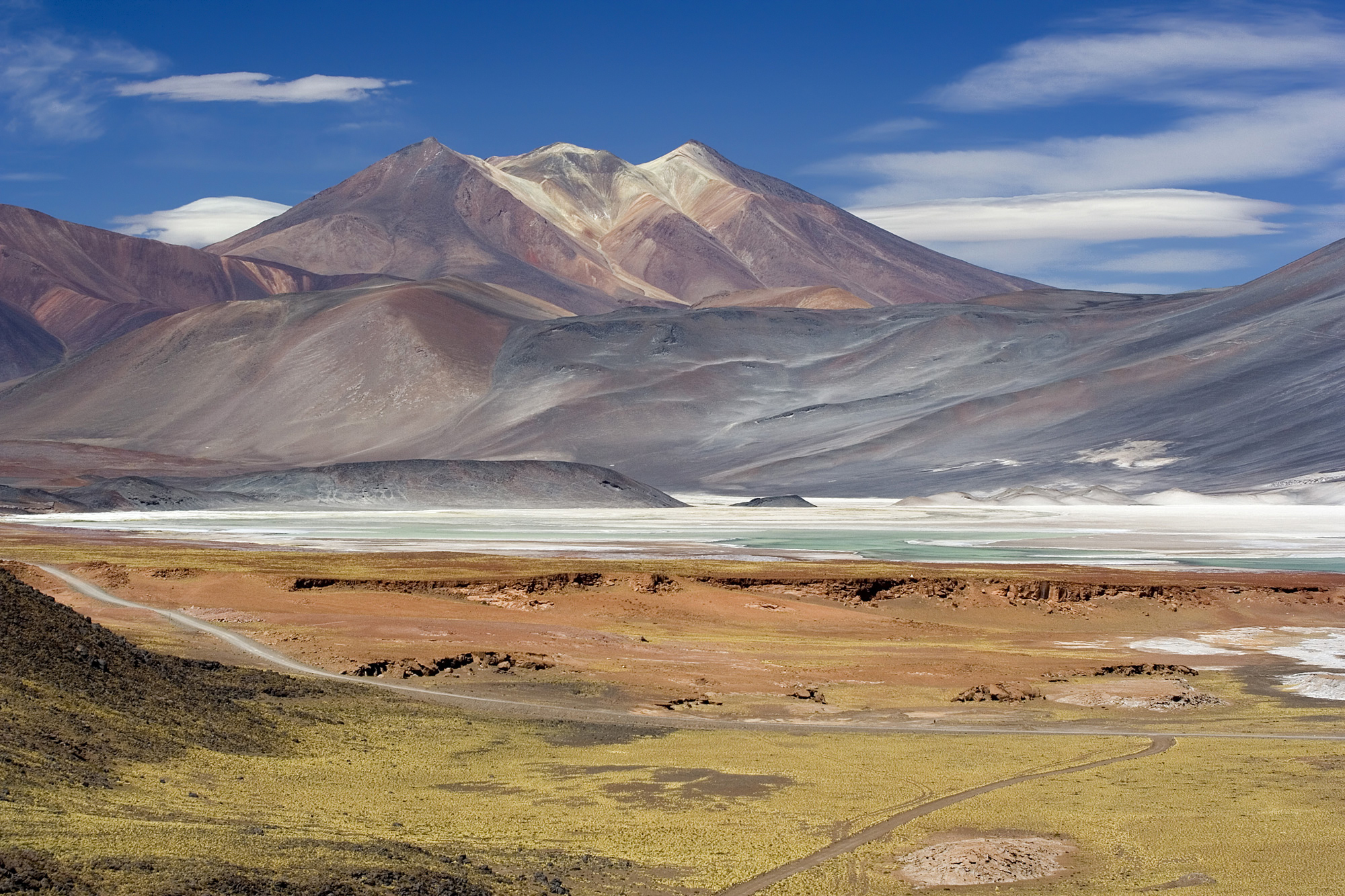
The Atacama Desert has very few dust storms or dusty days, even though it is the driest non-polar desert on Earth, a new JGR Atmospheres study finds. Credit: Wikimedia Commons/ Luca Galuzzi/ CC BY-SA 2.5
Featured Research
The Atacama Desert is dry, but not dusty
The Atacama Desert is one of the driest places on Earth, but a new study reveals it’s not as dusty as we thought. There are fewer than two dust storms per year in the desert on average, and there have only been around 2,000 dusty days in the Atacama over the last 72 years. [JGR Atmospheres study]
Flesh-eating aquatic bacteria flourish in the Gulf of Mexico’s warming waters
Vibrio vulnificus is a dangerous bacterium found in warm, mildly salty waters. New research finds that infections from the bacteria increase in the Gulf region after periods of high sea surface temperature and high chlorophyll levels, a proxy for zooplankton concentration. [GeoHealth study]
Per- and poly-fluoroalkyl substances from e-waste disposal may affect breast milk steroid levels
E-waste disassembly centers release PFAS compounds into the surrounding environment. According to a new study, mothers living near e-waste facilities in China have breastmilk with altered steroid hormone levels, and the PFAS consumption of their breastfeeding infants is higher than recommended. [GeoHealth study]
Alaskan glacier creates natural climate change experiment
A glacier advanced toward Alaska’s La Perouse forest during the Little Ice Age (1850-1895) and then retreated away from the forest due to climate change (post-1950). Using tree ring analysis, a new study finds that five of the forest’s dominant tree species began to grow at different rates from each other during these periods of rapid temperature change, leading to greater overall forest stability. [Geophysical Research Letters study]
Brown carbon contributes to China’s pollution problems
Brown carbon enters the atmosphere from both biomass burning and residential cooking and heating. New research finds that brown carbon makes up approximately 19% and 12% of the light absorption of polluting aerosols in China’s atmosphere in the summer and winter, respectively, contributing to local warming. [Geophysical Research Letters study]
European heat waves boosted by atmospheric circulation changes, aerosol reductions
In recent years, Europe has experienced more heat waves than average compared to the rest of the globe. Those heat waves are partially caused by human-induced atmospheric circulation changes and reduced aerosol emissions in Europe, new research finds. [Geophysical Research Letters study]
Eliminating the “free river” loophole could reduce the Colorado River’s water crisis
When all water users in the Colorado River Basin have sufficient water supply, Colorado declares the river and its tributaries to be under “free river” conditions. During free river conditions, both permitted and non-permitted users may take as much water as they like from the river. Closing the free river loophole may help alleviate the drought in the basin, where water levels in Lake Mead and Lake Powell were 75% empty at the beginning of 2023. [Water Resources Research commentary] [University of Virginia press release]
###